The opening ceremony of the Fourth Global Youth Summit on Net-zero Future, jointly hosted by the Global Alliance of Universities on Climate (GAUC) and the UNESCO Regional Office of East Asia, was held at Tsinghua University on September 12. Young delegates and invited guests from 26 countries participated in the summit. Representatives from global stakeholders such as UNESCO, the World Bank Group, the Asian Development Bank, the Mercedes-Benz Star Fund, and the China Youth Development Foundation joined the summit to engage in exchanges and discussions with young people. The summit aims to gather youth forces to promote climate action and voice youth perspectives and innovative solutions for the upcoming 29th United Nations Climate Change Conference (COP29) to be held in Baku, Azerbaijan. The opening ceremony attracted over 270,000 online viewers.
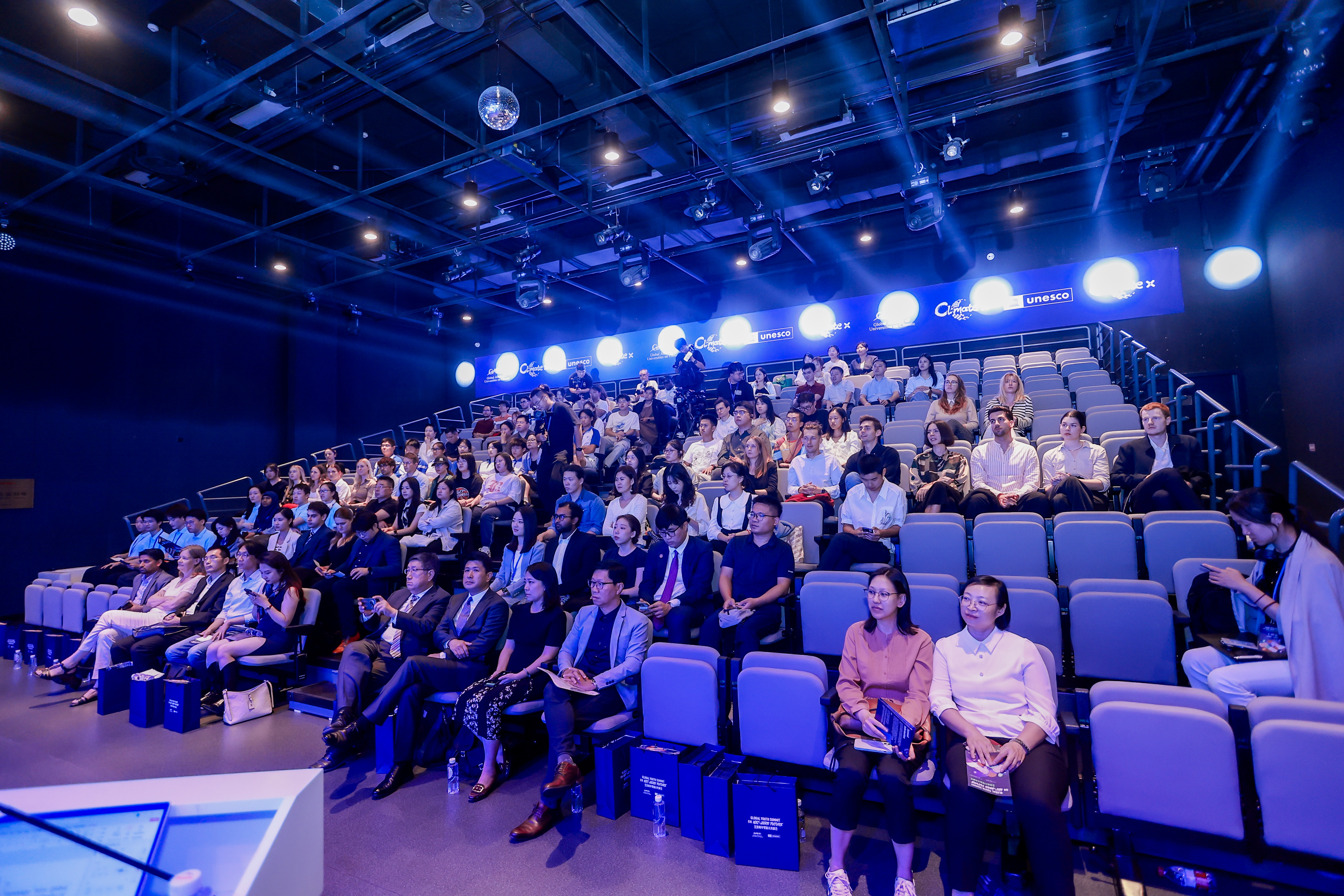
Liu Zhenmin, China's Special Envoy for Climate Change, spoke highly of the commitment and contribution of youth climate actions in his opening remarks. He highlighted the urgency and complexity of global climate governance, calling on the global community to form tighter partnerships in order to meet the goals set by the Paris Agreement. Liu stated that China is committed to the national strategy of combating climate change, through various measures including the development of new energy, improving energy efficiency, and increasing carbon sinks. He also stressed that young people are not only the inheritors, but also the architects of a carbon-neutral future. He encouraged youth to take their participation in the summit as a starting point, to continue contributing to global climate action, and to demonstrate their commitment to global sustainable development through actions.
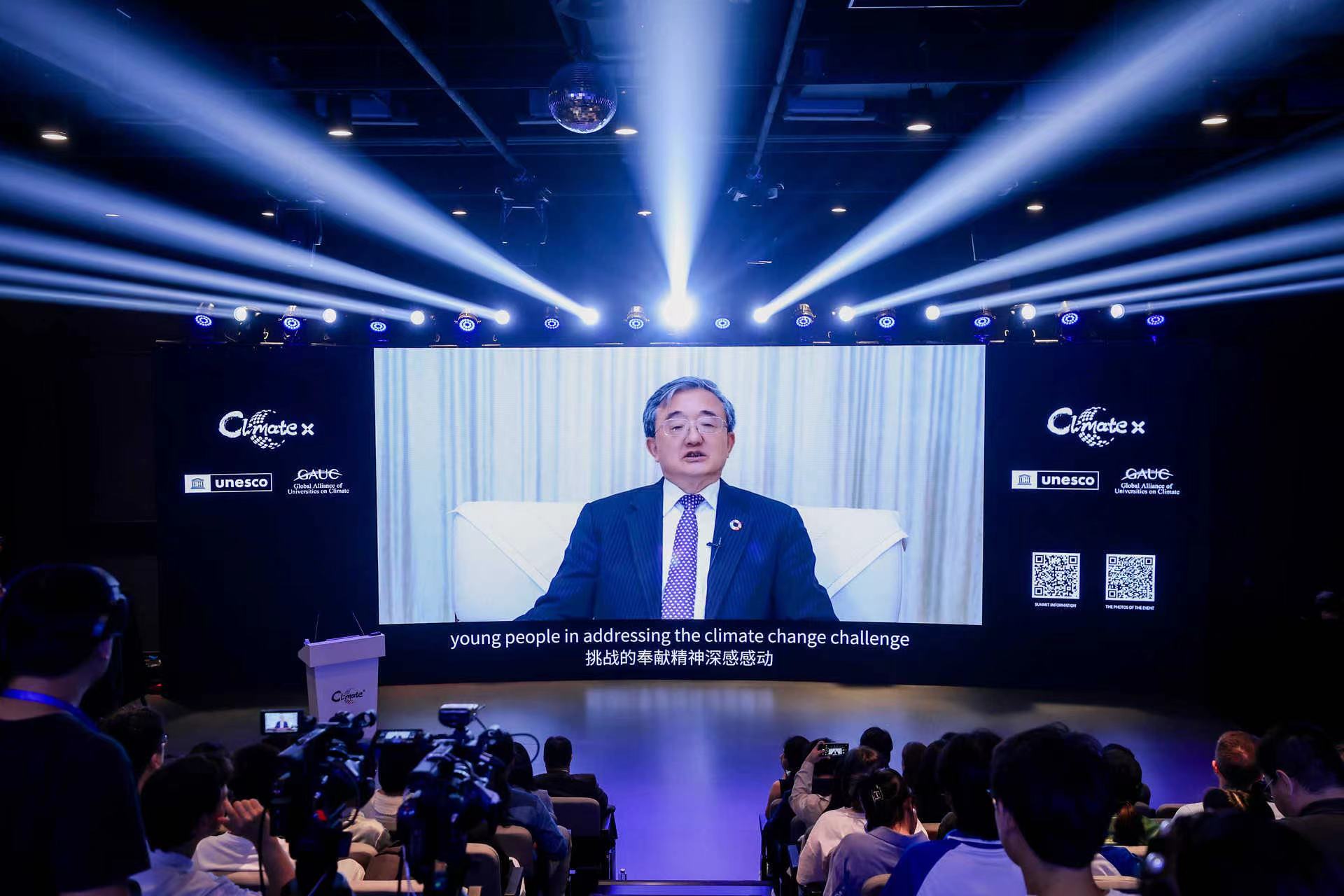
Shahbaz Khan, Representative and Director of the UNESCO Regional Office for East Asia, praised the passion and responsibility shown by youth in addressing climate change and their innovative contributions to sustainable development. He emphasized the need for scientific and innovative solutions to climate change, driving societal green transformation through education, culture, and technology. Cultivating the next generation of leaders equipped to tackle climate change is particularly crucial. Professor Khan introduced UN initiative The International Science Decade for Sustainable Development (2024-2033), which leverages science to achieve the United Nations' Sustainable Development Goals (SDGs). He expressed the intention to strengthen cooperation with Tsinghua University and GAUC in climate change and science education issues, empowering global youth to engage in climate action through technological innovation.
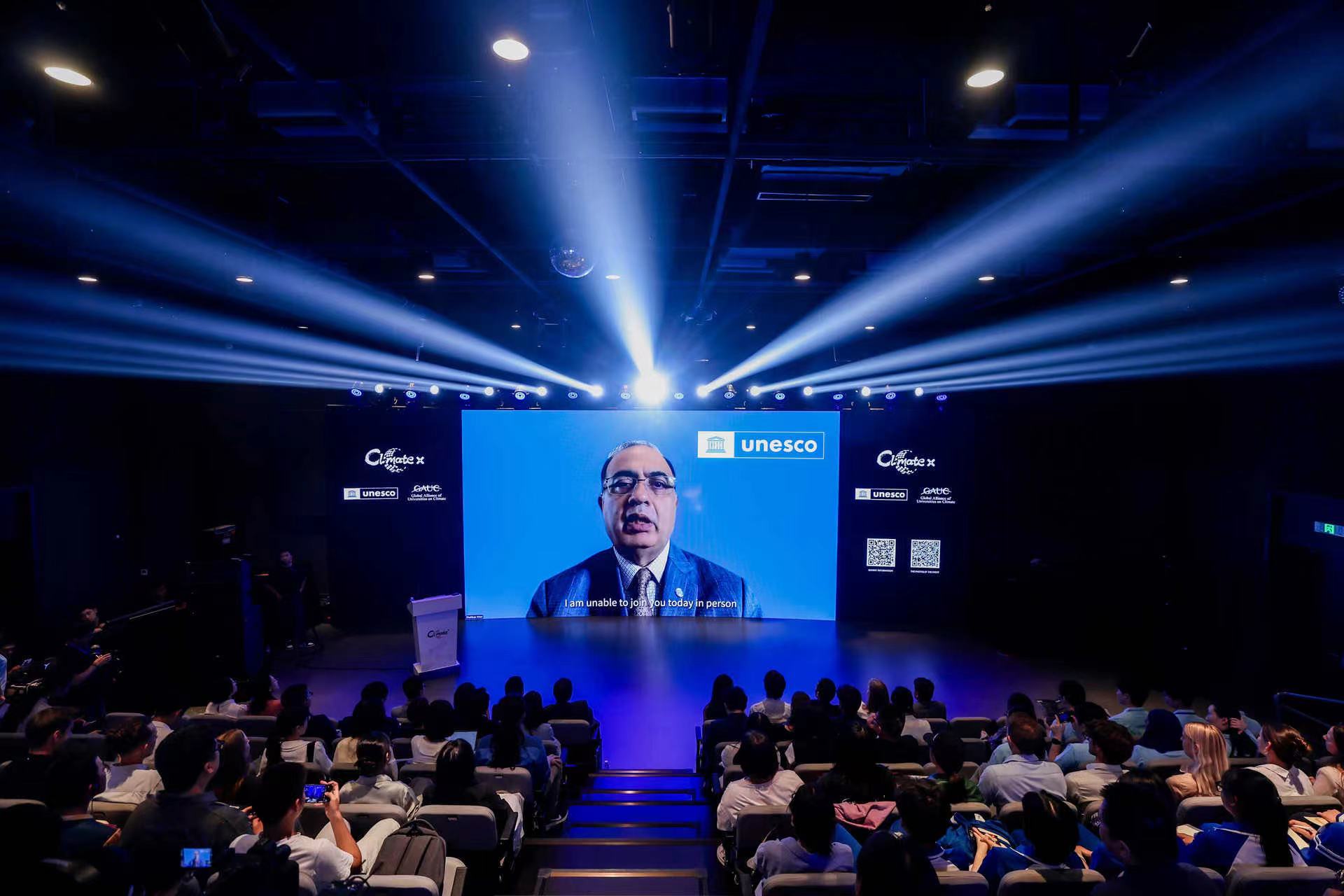
Li Zheng, Dean of the Institute of Climate Change and Sustainable Development at Tsinghua University and Secretary-General of GAUC, noted that climate change is one of the greatest challenges facing the world today, and youth, as future leaders, is the backbone of the net-zero future. “We recognize the pivotal role that young leaders and climate activists play in shaping our collective future. The climate journey ahead of the young people will be challenging. This summit stands as a manifesto of the collective efforts of global higher education.” Li emphasized. He then shared the climate actions and research progress of the Tsinghua University. “I have personally witnessed Tsinghua University elevate its low-carbon mission to a strategic imperative, leveraging our campus as a living laboratory to assess and refine our strategies for mitigating the impacts of climate change,” he said.
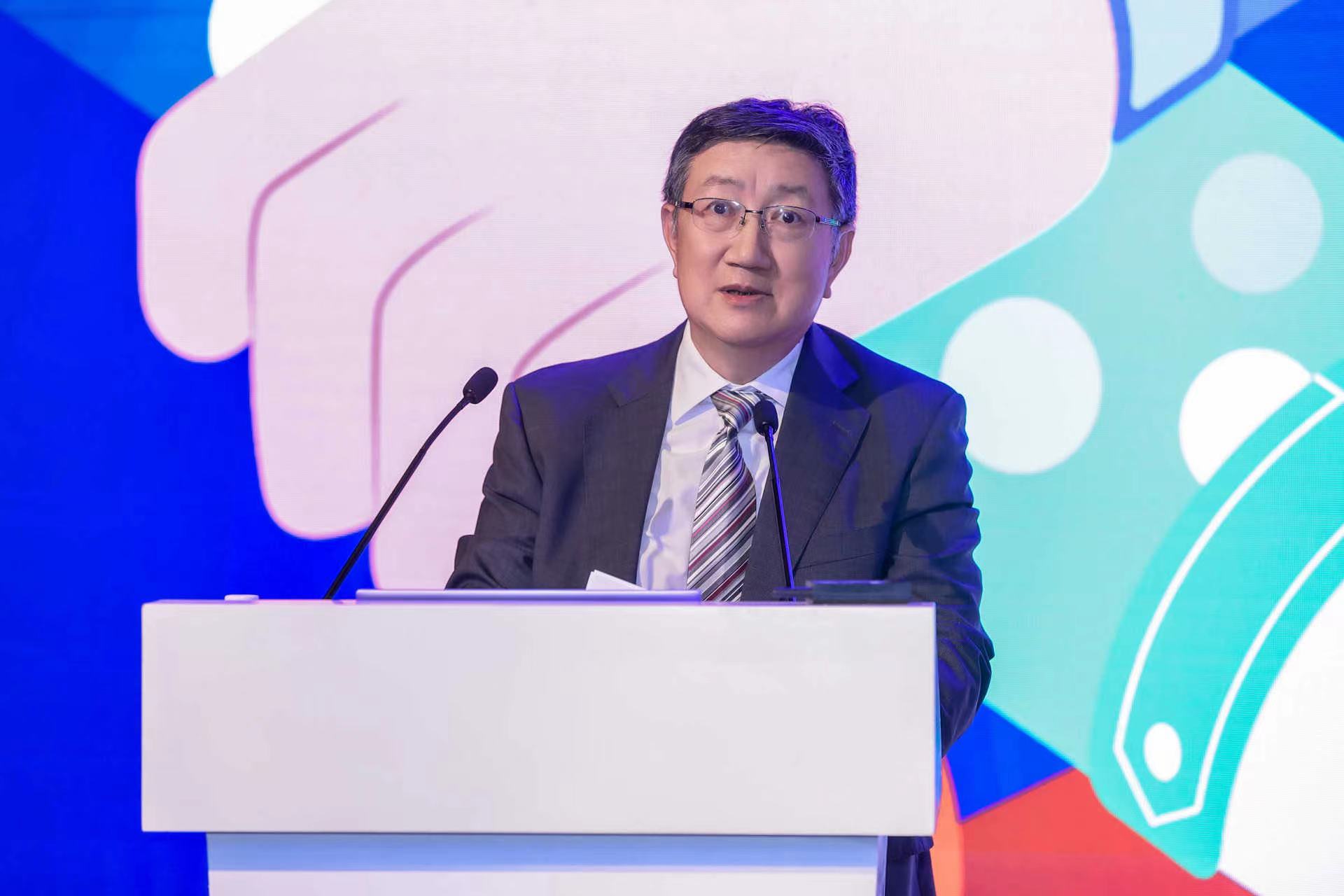
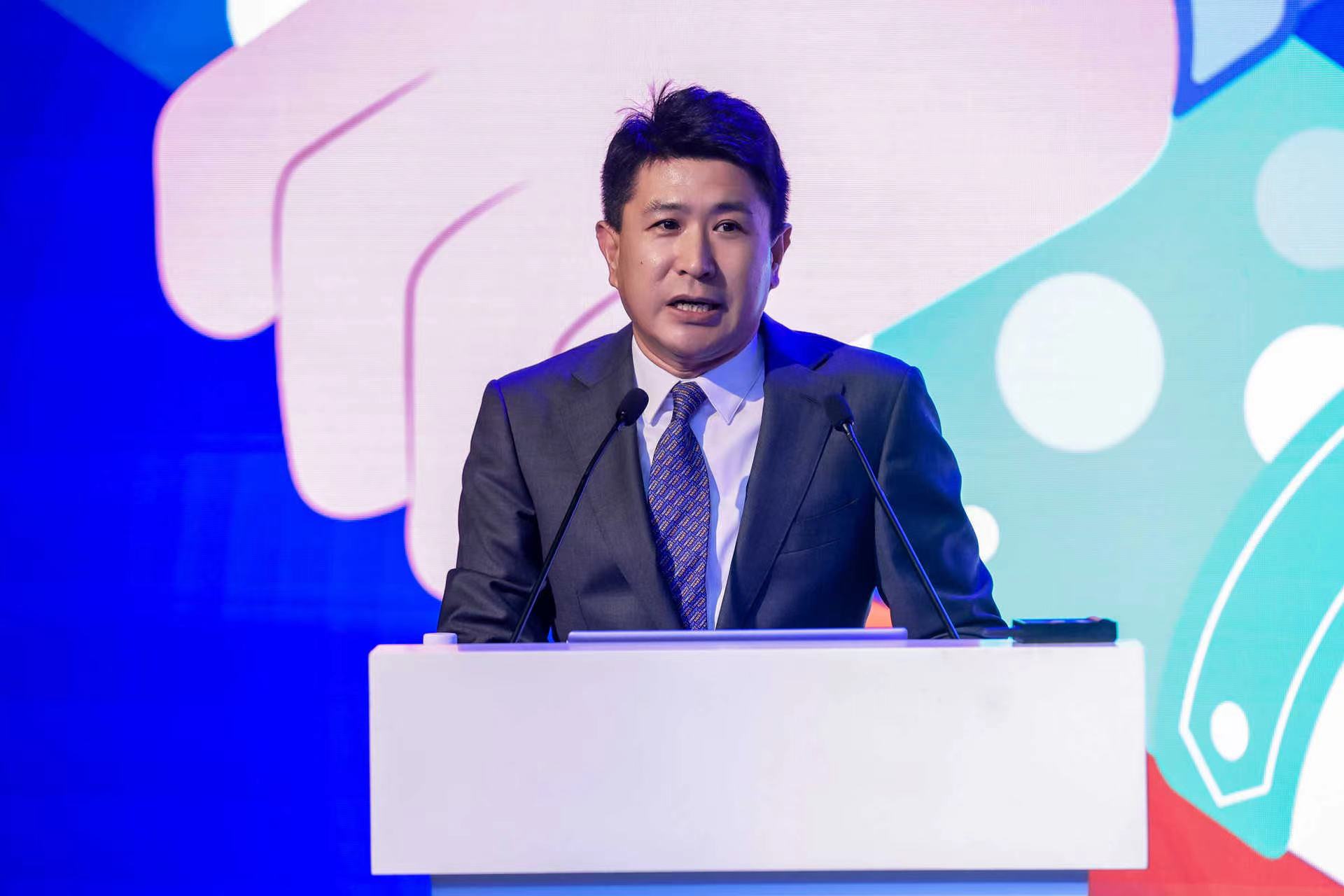
Zhang Jian, Deputy Secretary-General of GAUC, moderated the opening ceremony.
An Najiang, Program Officer of GAUC, introduced GAUC's mission and history. Since its establishment in 2019, GAUC has conveyed the collective strength of leading higher education institutions and speared no effort in addressing climate change challenge through joint research, talent cultivation, campus decarbonization, societal implementation, and public engagement. Through GAUC's ‘Climate x’ Campaign and the Global Youth Climate Week which GAUC launched with more than 100 global partners, over 1,000 youth from more than 80 countries and regions have received training and have organized over 300 climate events in their local communities, impacting about 40,000 individuals. She invited global youth to actively participate in innovative climate actions during COP29, contributing youth wisdom to global climate governance.
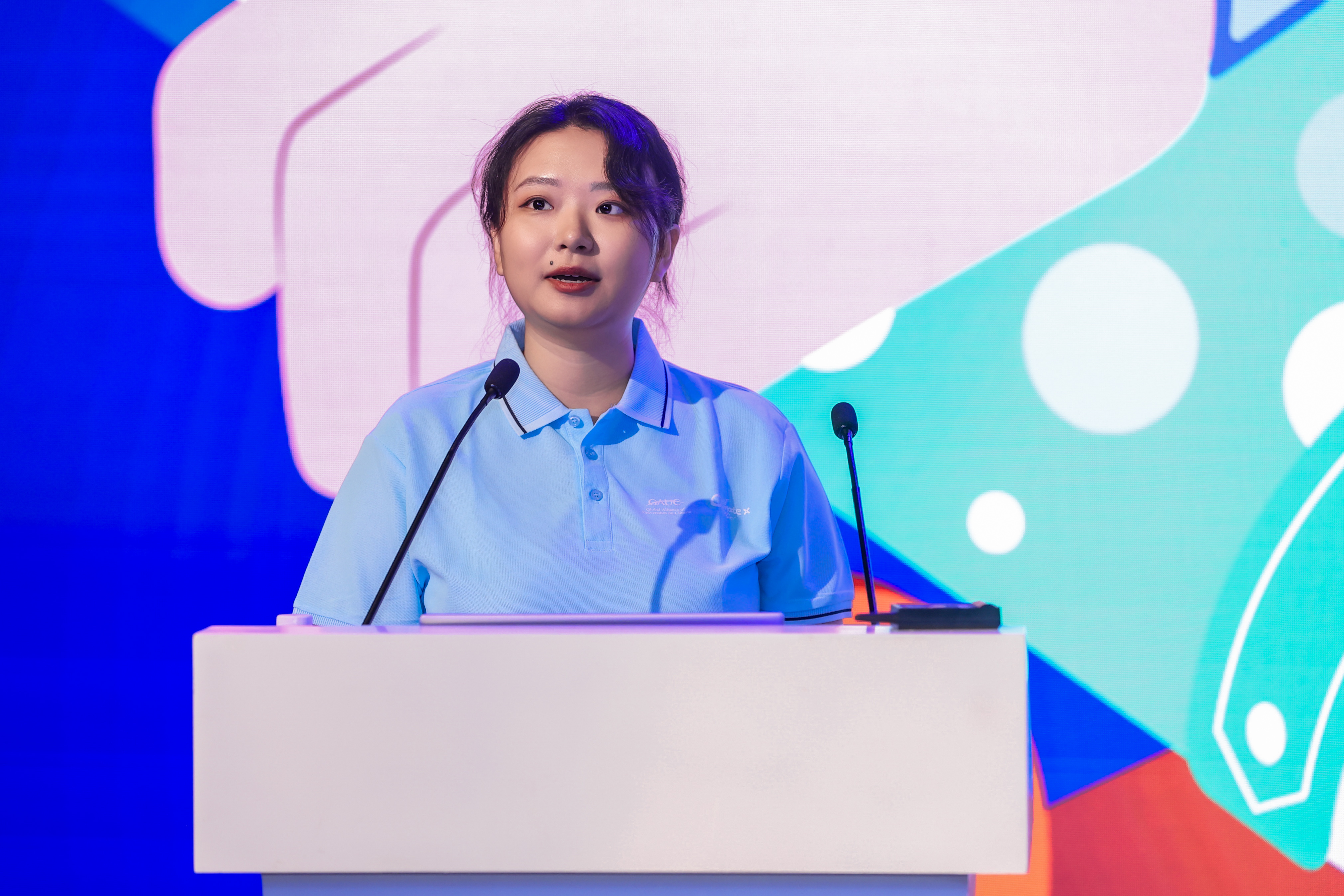 Representatives of the summit's student organizing committee introduced event schedule. The youth organizers of this summit, hailing from various universities across countries, embody the action philosophy of "by Youth, for Youth". Spanning three days, the summit comprises four challenge themes centered on "clothing, food, shelter, and transportation," as well as a "My Zero Carbon Diary" creative short video contest. These initiatives encourage youth to influence the sustainable practices of businesses and social organizations through action, participating in practical solutions within the realm of climate change and sustainability. This process elevates the motivation, sense of mission, and leadership skills of outstanding climate talents, showcasing youth's responsibility and commitment to global climate leaders, policymakers, and stakeholders interested in climate governance.
Representatives of the summit's student organizing committee introduced event schedule. The youth organizers of this summit, hailing from various universities across countries, embody the action philosophy of "by Youth, for Youth". Spanning three days, the summit comprises four challenge themes centered on "clothing, food, shelter, and transportation," as well as a "My Zero Carbon Diary" creative short video contest. These initiatives encourage youth to influence the sustainable practices of businesses and social organizations through action, participating in practical solutions within the realm of climate change and sustainability. This process elevates the motivation, sense of mission, and leadership skills of outstanding climate talents, showcasing youth's responsibility and commitment to global climate leaders, policymakers, and stakeholders interested in climate governance.

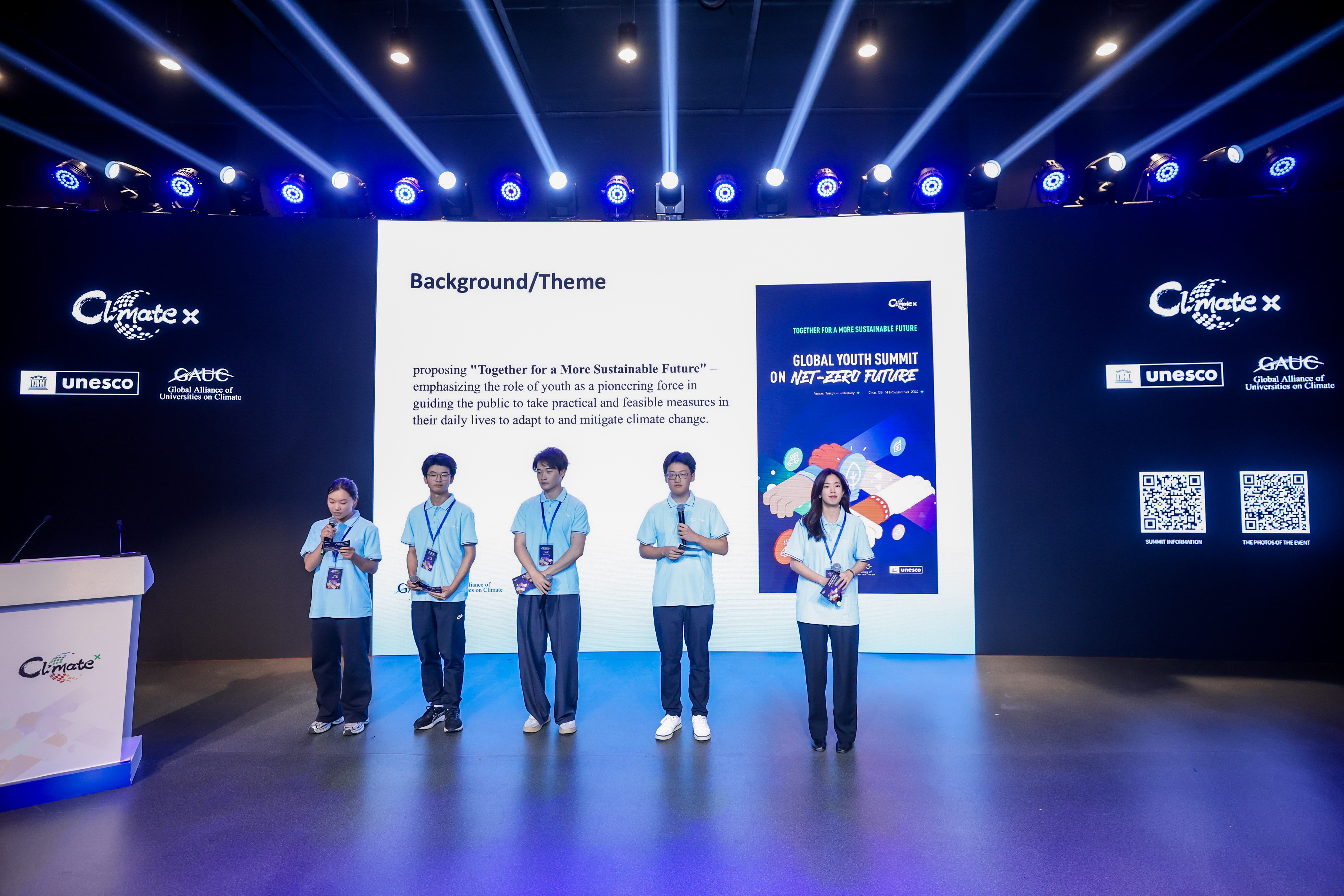

The opening ceremony was followed by two panel discussions between youth representatives and leading experts from the industry, themed “Mitigating Climate Change” and “Adapting to Climate Change. The first panel discussion featured contributions by Mr. Lee Ming Tai, Head of Portfolio Management Unit, PRC Resident Mission from the Asian Development Bank (ADB), Mr. Liu Jianguo, Deputy Director of the International Cooperation Center of the Energy Research Institute of the Chinese Academy of Macroeconomic Research, and Mr. Li Xiaojian, Project Manager of Innovation & Sustainability at the Mercedes-Benz Research & Development Tech Center China. The second panel discussion featured contributions by Professor Miranda Schreurs from Technical University of Munich, and Mr. Rajesh Koirala, Senior Environmental Specialist at the World Bank Group. Eight young representatives from China, Bangladesh, Vietnam, German and Spanish attended the panel discussions.
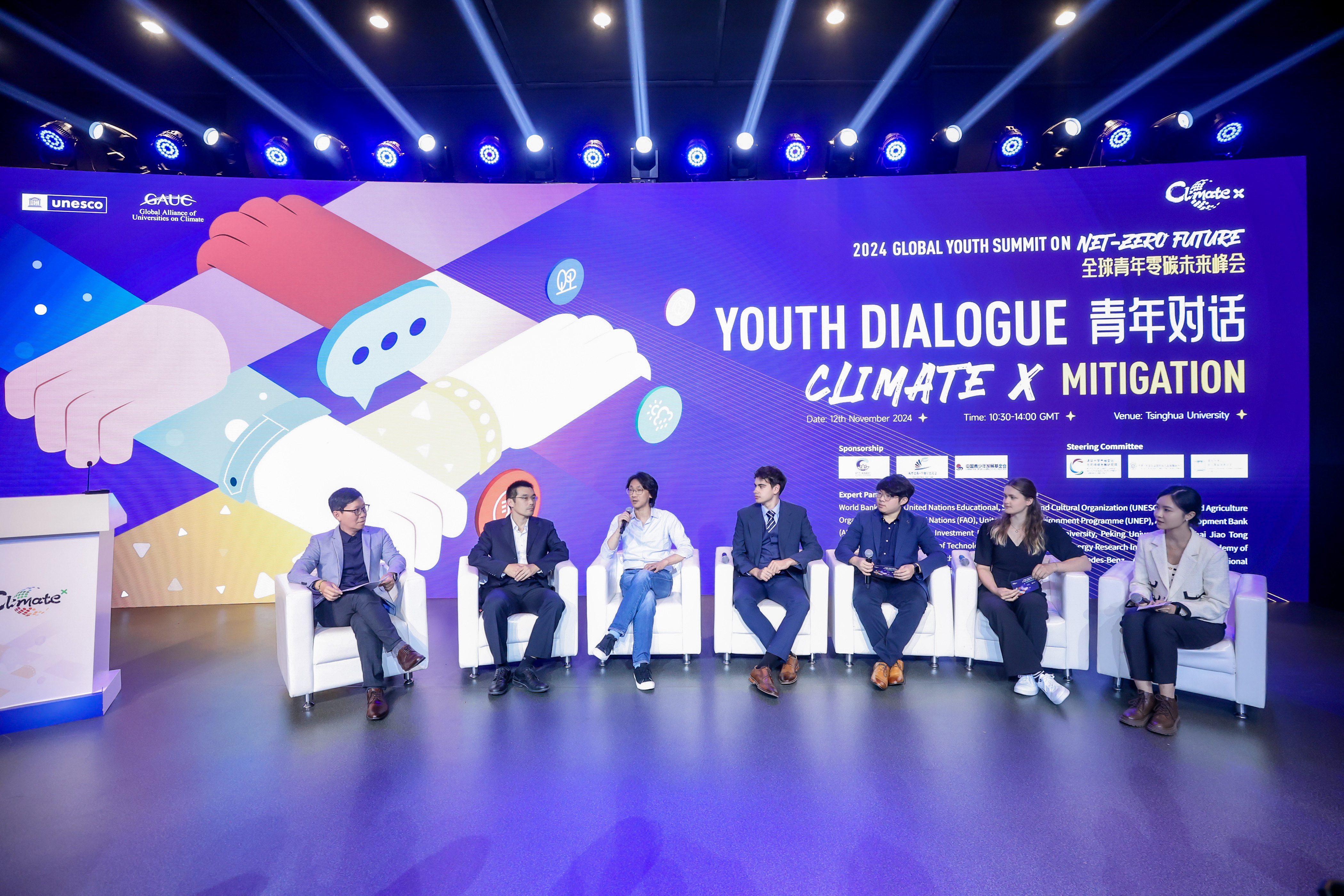
Li Xiaojian introduced Mercedes-Benz's "2039 Vision" and its tailored initiatives in the Chinese market. He shared the company’s measures to achieve a low-carbon transformation across its entire value chain, including using sustainable materials, employing green electricity and self-generation through solar panels, reducing waste in manufacturing and logistics, and utilizing a closed-loop recycling system for decommissioned power batteries. Mr. Lee Ming Tai presented the ADB's green financing projects, sharing progress and success stories of over 70 green initiatives implemented in China and demonstrating how collaboration with local communities can facilitate the realization of zero-carbon emissions. Mr. Liu Jianguo outlined China's challenges and opportunities in the energy transition. Despite a continuously growing energy demand, China is actively promoting the development of renewable energy sources.
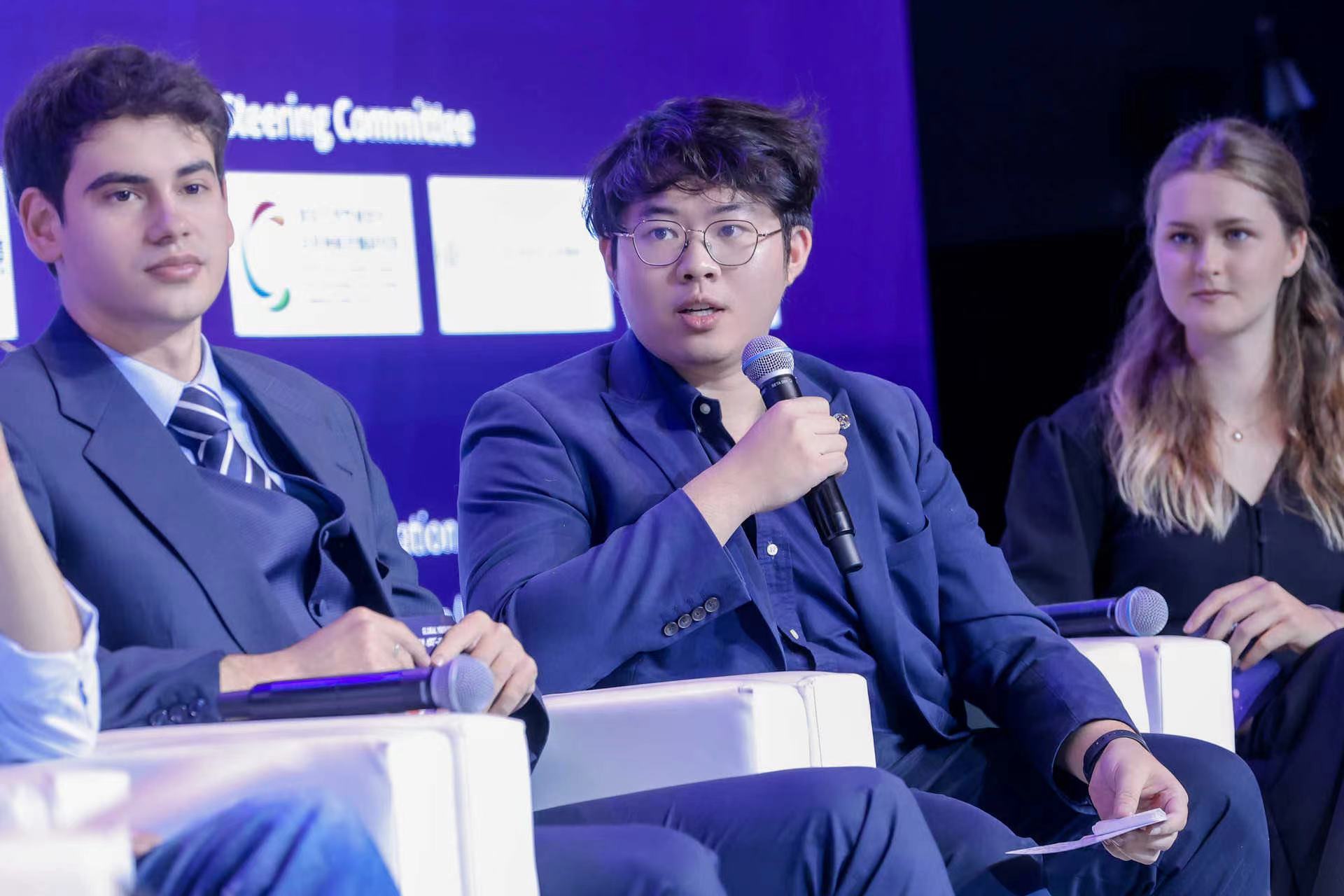
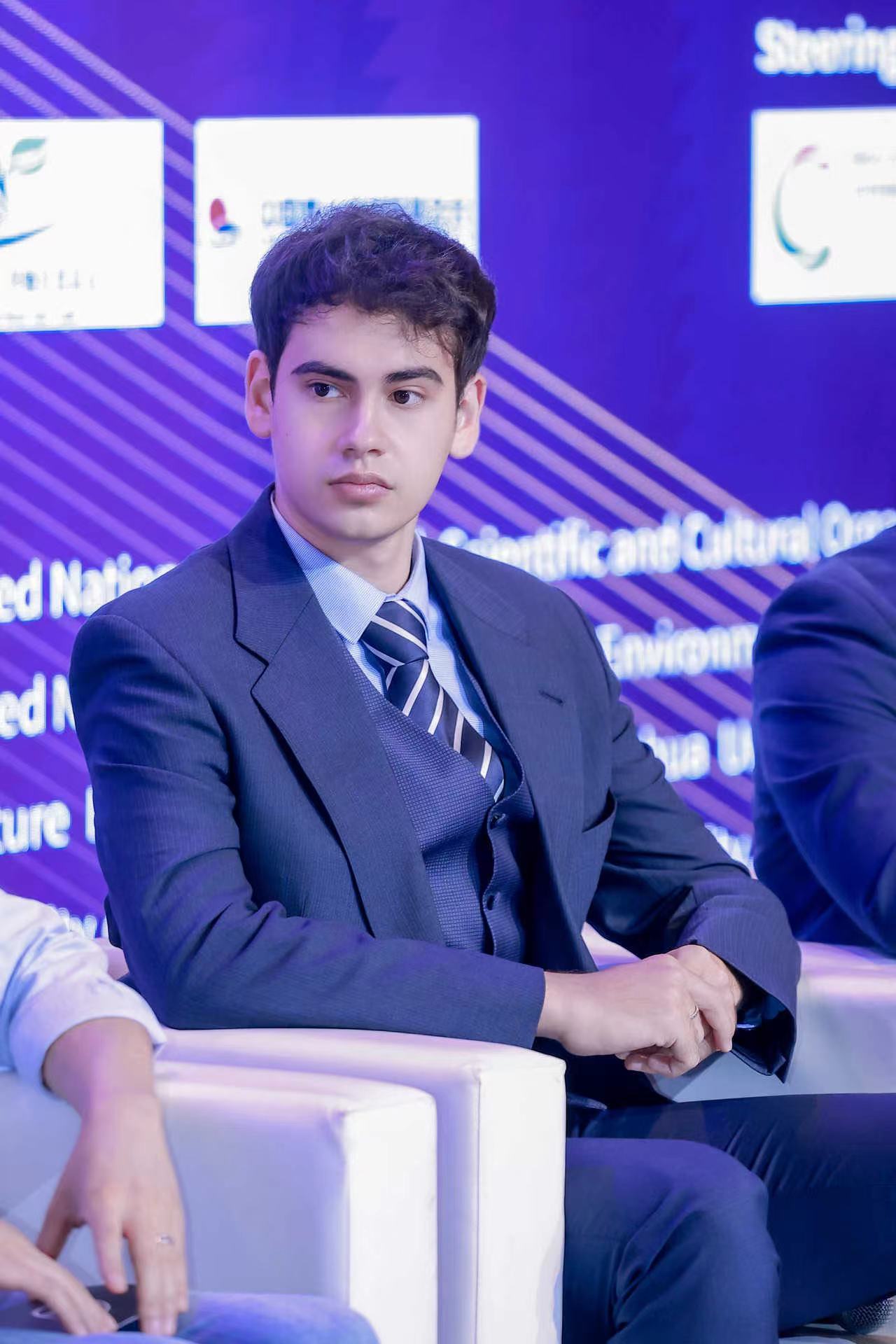

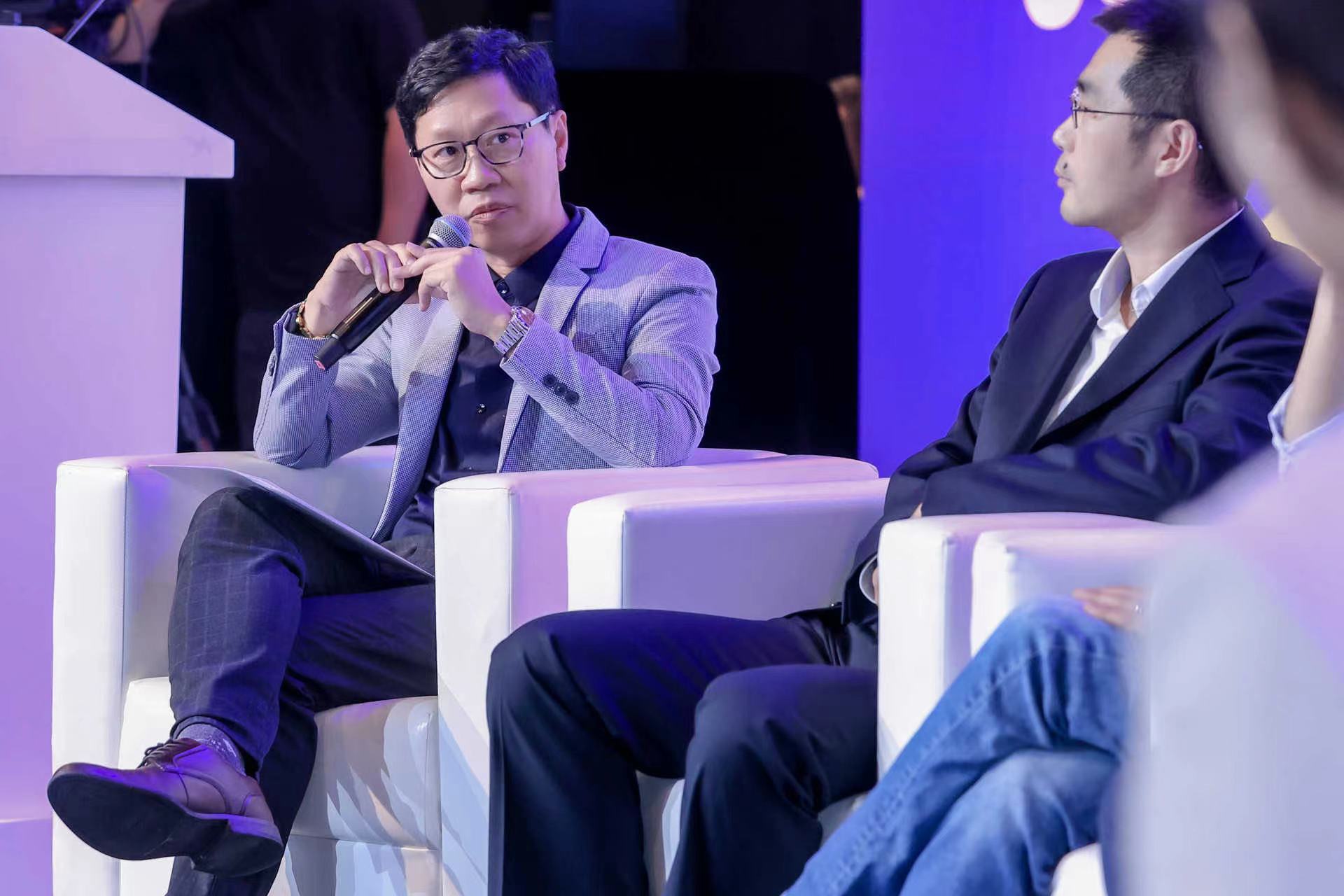
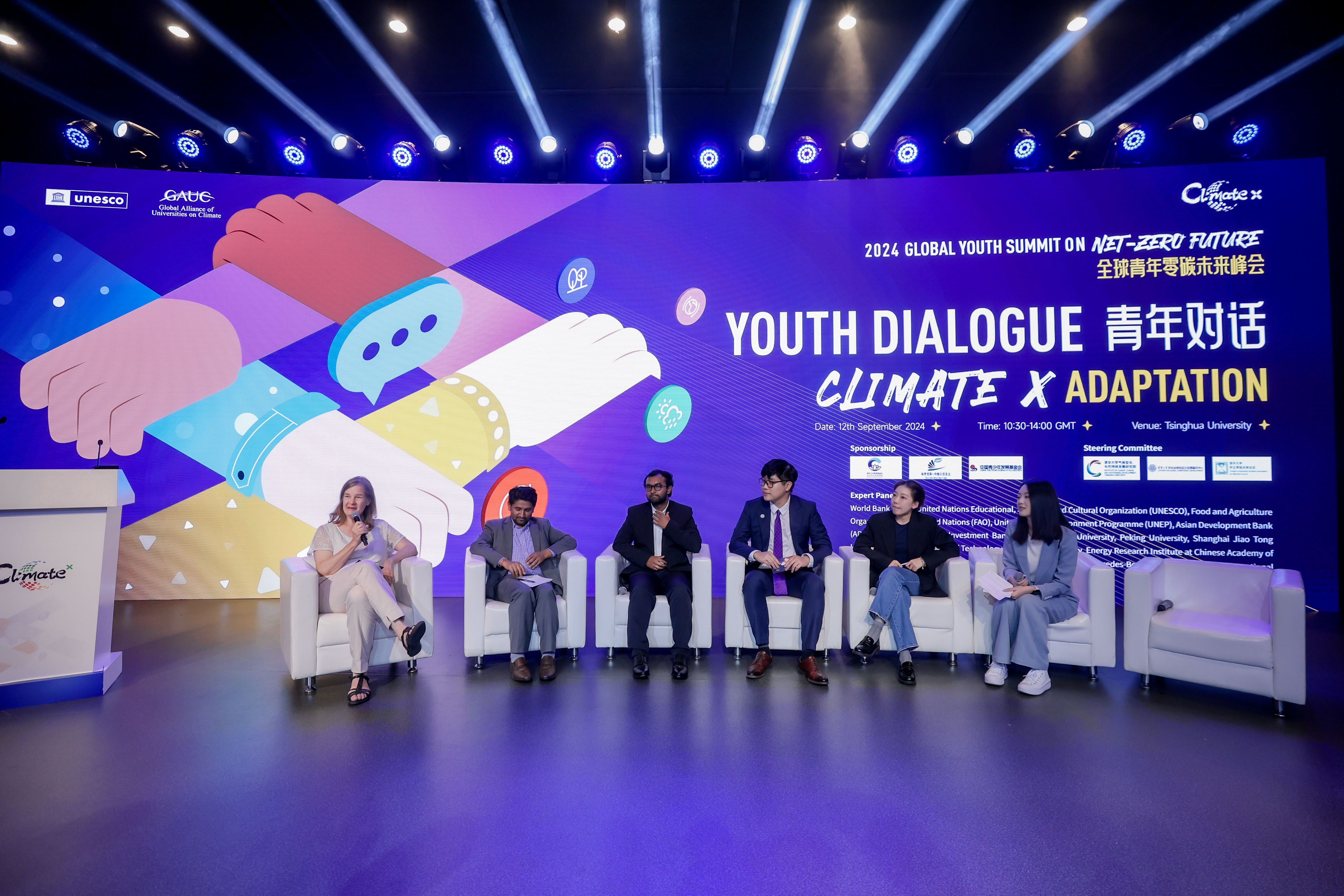 Professor Miranda Schreurs underscored that the impacts of global climate change have profoundly affected the livelihood of human beings, particularly vulnerable groups in developing countries. She called for collaboration across sectors, leveraging the innovative and research capabilities of universities to drive effective policies and technologies aimed at adaptation. Mr. Rajesh Koirala discussed the World Bank Group's (WBG) efforts in supporting developing countries' adaptation to climate change from a financial institution's perspective. He introduced the WBG's financing mechanisms and multi-stakeholder collaboration models, emphasizing that adaptation to climate change and economic development are not mutually exclusive but rather complementary.
Professor Miranda Schreurs underscored that the impacts of global climate change have profoundly affected the livelihood of human beings, particularly vulnerable groups in developing countries. She called for collaboration across sectors, leveraging the innovative and research capabilities of universities to drive effective policies and technologies aimed at adaptation. Mr. Rajesh Koirala discussed the World Bank Group's (WBG) efforts in supporting developing countries' adaptation to climate change from a financial institution's perspective. He introduced the WBG's financing mechanisms and multi-stakeholder collaboration models, emphasizing that adaptation to climate change and economic development are not mutually exclusive but rather complementary.
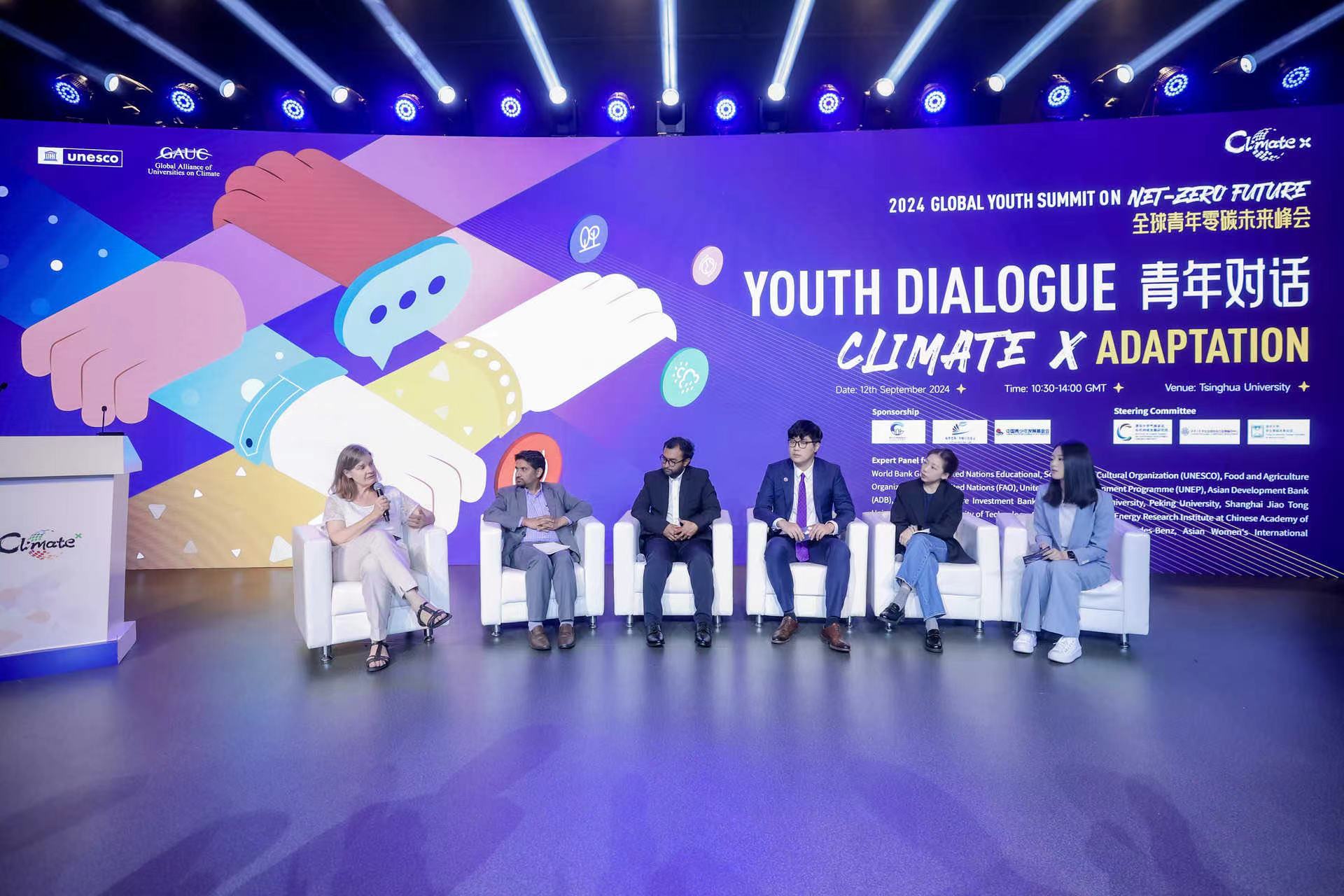
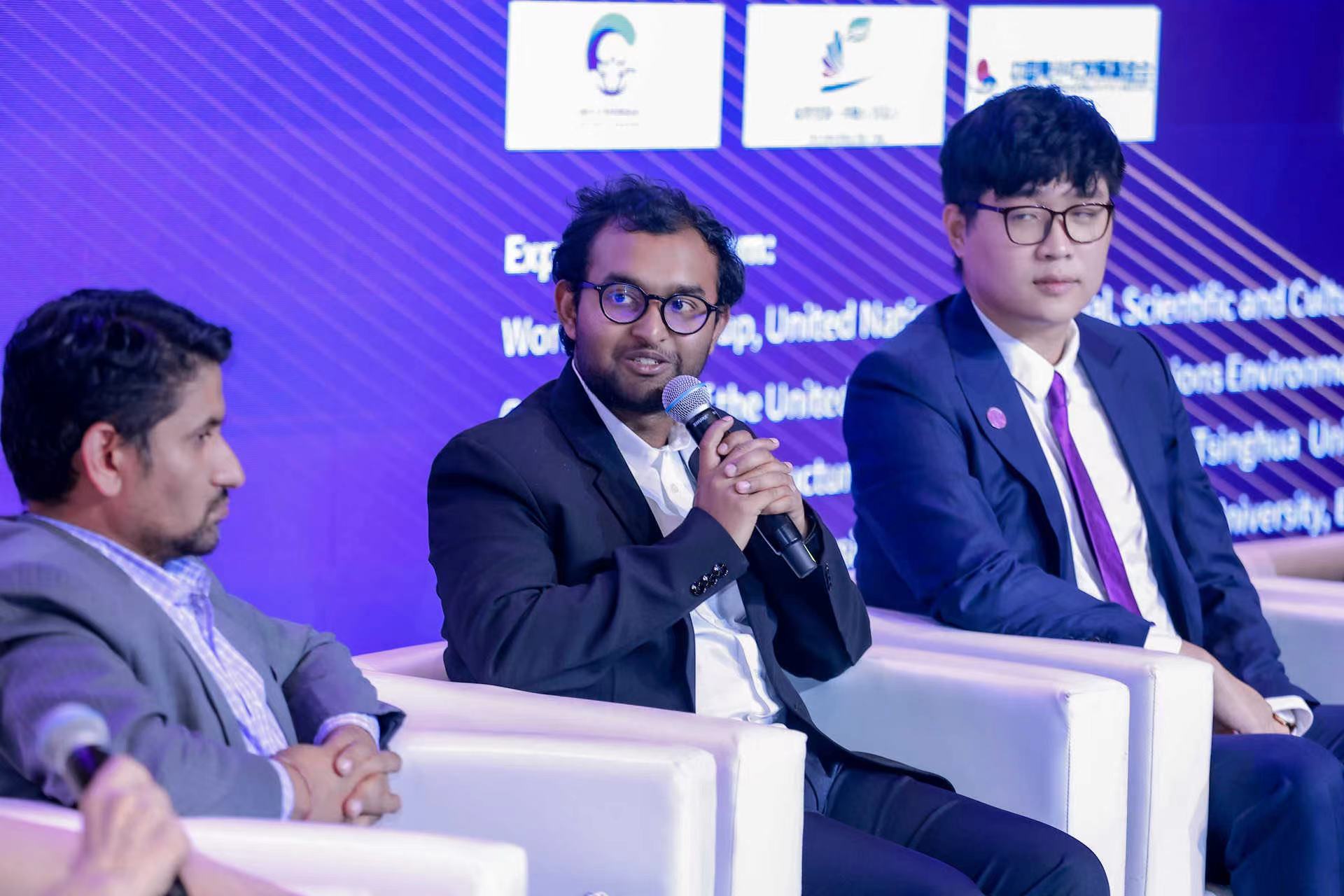
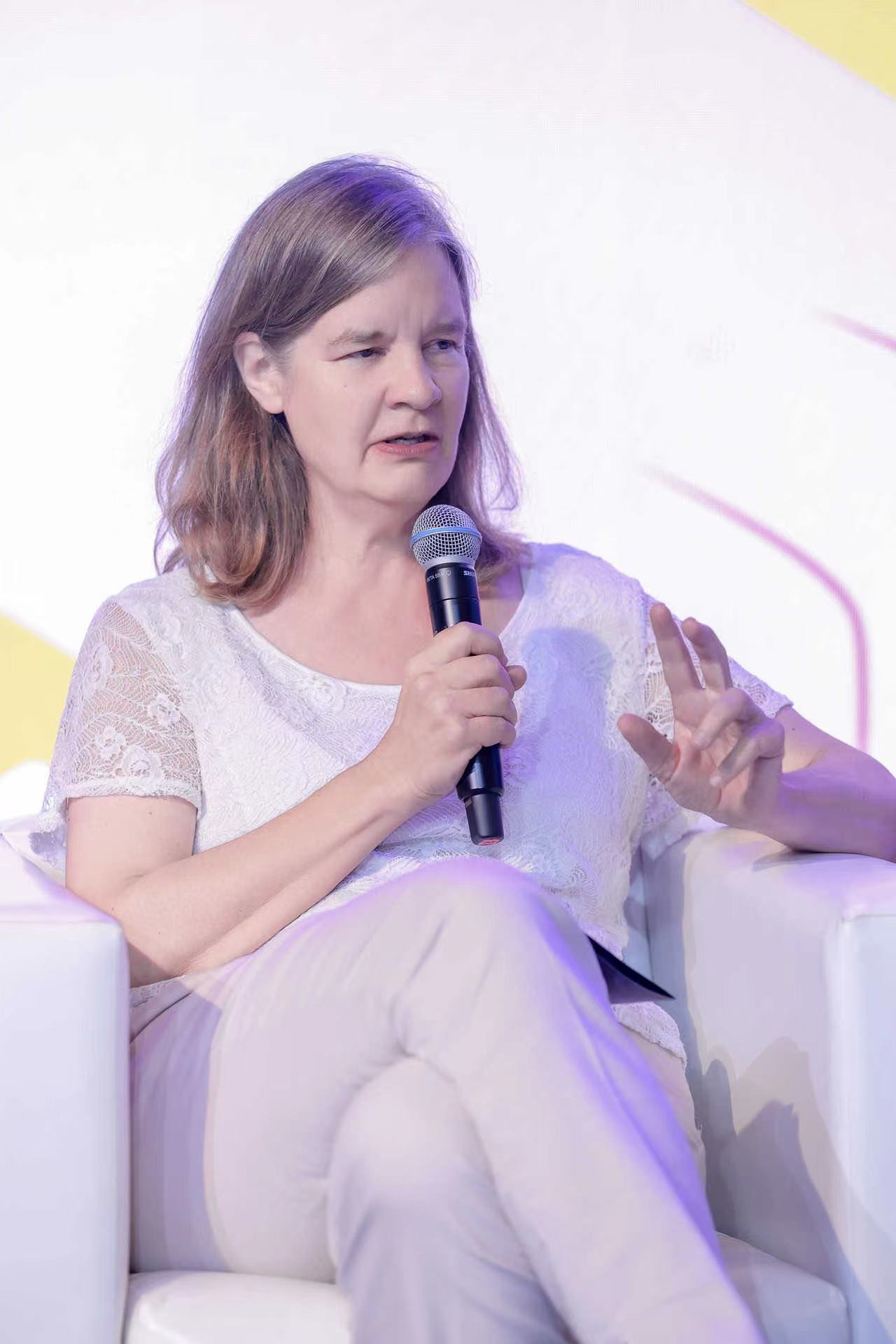

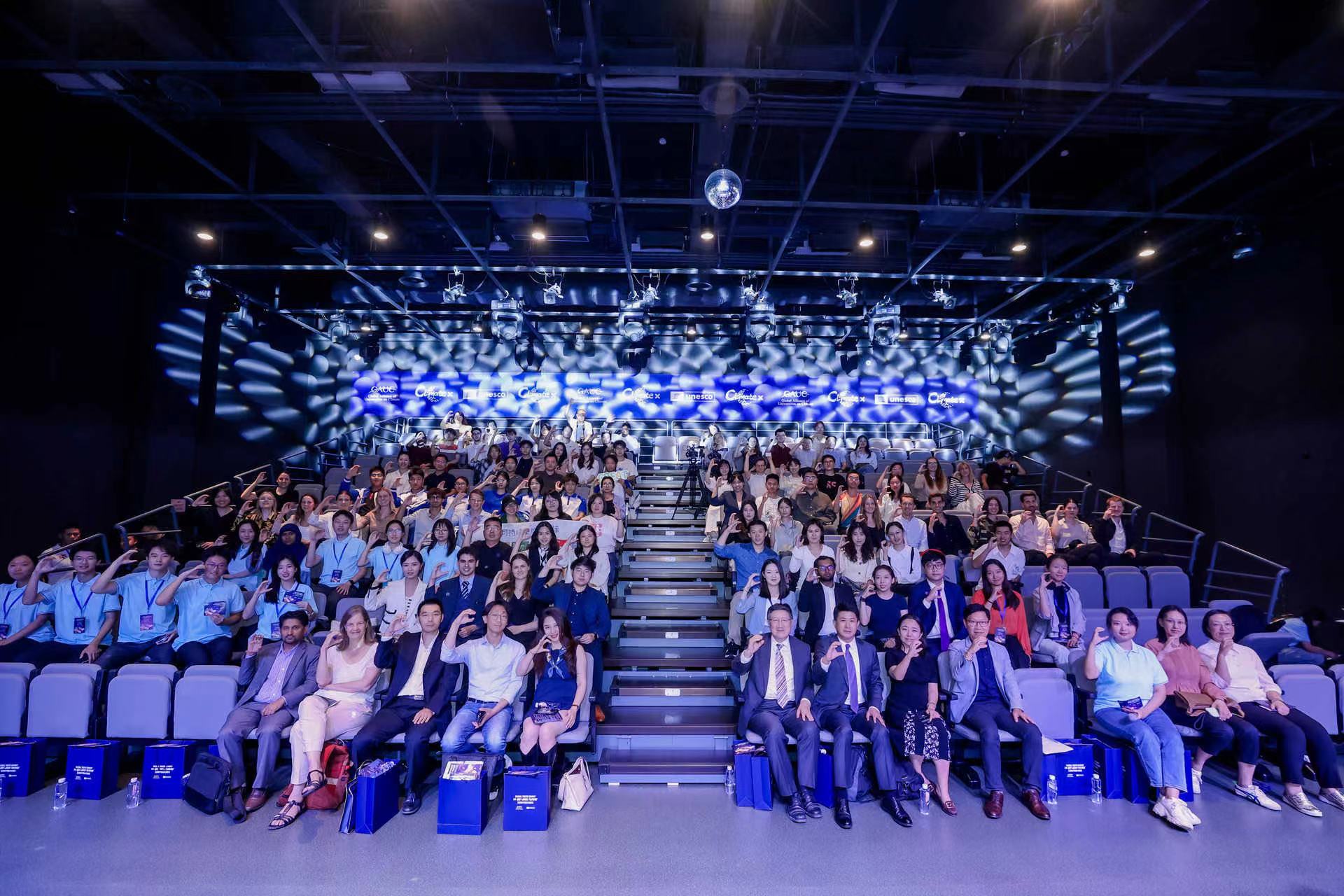
The 2024 Global Youth Summit on Net-zero Future is sponsored by Tsinghua University Education Foundation, Mercedes-Benz Star Fund, and China Youth Development Foundation.
From Global Alliance of Universities on Climate
Editor: Li Han

